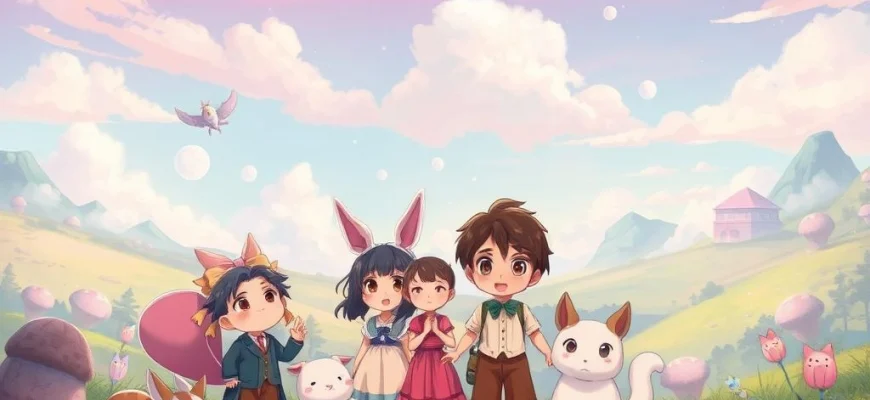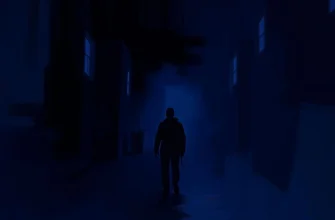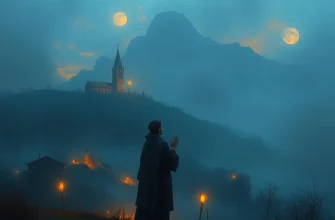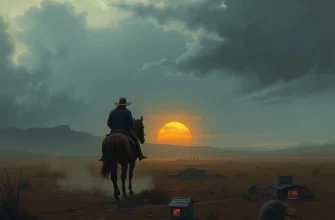Si vous avez adoré 'My Master Has No Tail' (2022), cette série animée captivante mêlant fantaisie et humour, vous allez adorer ces 10 films et séries similaires. Découvrez des univers enchanteurs, des personnages attachants et des histoires tout aussi envoûtantes qui sauront vous charmer.

Pom Poko (1994)
Description: This film explores themes of folklore and supernatural creatures, blending reality with fantasy in a way that resonates with traditional Japanese mythology. The story revolves around shape-shifting tanuki who struggle to preserve their habitat, highlighting themes of coexistence and cultural identity.
Fait: The film features a mix of traditional and modern animation techniques, and it was one of the first Studio Ghibli films to address environmental issues directly.
 Regarder
Regarder

Princess Mononoke (1997)
Description: A dark and epic tale that intertwines human conflict with the spiritual world, this film delves into themes of nature, industrialization, and the supernatural. The intricate portrayal of gods and spirits reflects a deep connection to Japanese folklore.
Fait: It was the highest-grossing film in Japan until Titanic surpassed it later the same year.
 Regarder
Regarder

Spirited Away (2001)
Description: This iconic film immerses viewers in a richly detailed spirit world, where humans and supernatural beings coexist. The protagonist's journey through this mystical realm explores themes of identity, courage, and the blurred lines between reality and fantasy.
Fait: It won the Academy Award for Best Animated Feature, making it the first and only hand-drawn and non-English film to achieve this honor.
 Regarder
Regarder

The Cat Returns (2002)
Description: A whimsical tale that delves into the world of anthropomorphic animals and magical realms, this movie captures the charm of supernatural beings interacting with humans. The protagonist's journey into a fantastical world mirrors themes of self-discovery and transformation.
Fait: Originally conceived as a short film for a theme park, it was later expanded into a full-length feature due to its popularity.
 Regarder
Regarder

The Great Yokai War (2005)
Description: A fantastical adventure that brings traditional Japanese yokai to life, this film combines action, humor, and folklore. The protagonist's journey alongside these mythical creatures highlights themes of bravery and the supernatural.
Fait: Directed by Takashi Miike, known for his diverse filmography, this movie marked a departure from his usual darker themes.
 Regarder
Regarder

Ponyo (2008)
Description: A heartwarming tale that blends the ordinary with the magical, this film features a fish-girl who dreams of becoming human. The story's whimsical tone and aquatic setting create a enchanting atmosphere.
Fait: The animation was inspired by traditional watercolor techniques, giving the film a unique and vibrant visual style.
 Regarder
Regarder

From Up on Poppy Hill (2011)
Description: While more grounded in reality, this film still captures a nostalgic and poetic view of Japan, with subtle supernatural undertones. The story's focus on cultural preservation and personal connections resonates deeply.
Fait: It is based on a 1980s manga and was directed by Goro Miyazaki, son of the famed Hayao Miyazaki.
 Regarder
Regarder

The Boy and the Beast (2015)
Description: This story follows a young boy who enters a world of beasts and trains under a gruff mentor, blending themes of personal growth and supernatural elements. The dynamic between humans and mythical creatures is central to the narrative.
Fait: The film was a box office success in Japan, becoming one of the highest-grossing Japanese films of the year.
 Regarder
Regarder

Natsume's Book of Friends (2008)
Description: A serene and introspective series about a boy who can see spirits and inherits a book that binds them. The delicate balance between the human and spirit worlds is portrayed with deep emotional resonance.
Fait: The series has been praised for its calming atmosphere and has spawned multiple seasons due to its popularity.
 30 jours gratuits
30 jours gratuits

The Eccentric Family (2013)
Description: This series revolves around a family of tanuki living in modern Kyoto, blending urban life with folklore. The playful yet poignant exploration of identity and tradition makes it a standout.
Fait: The show is based on a novel by Tomihiko Morimi, who also wrote the source material for 'The Tatami Galaxy.'
 30 jours gratuits
30 jours gratuits









